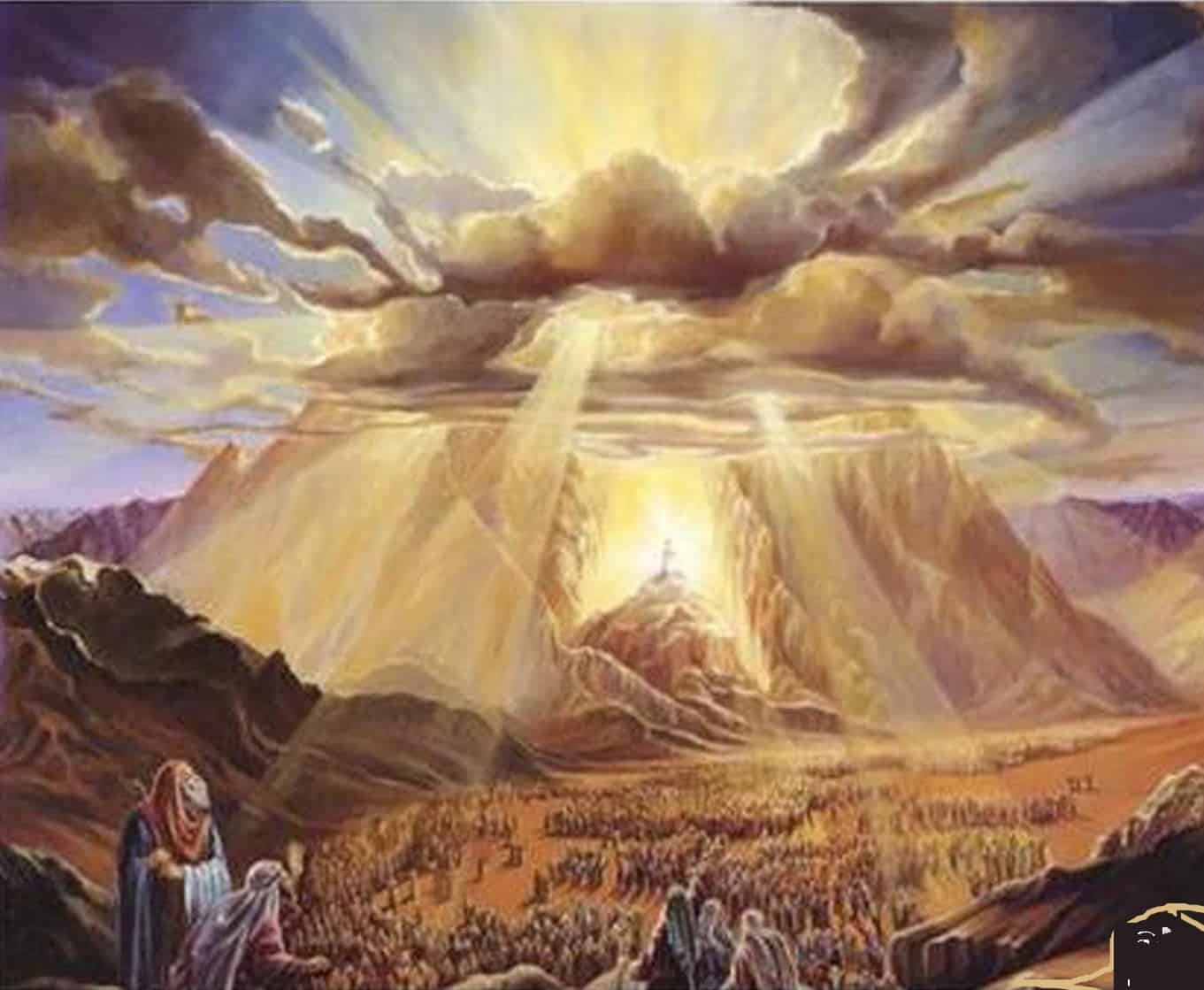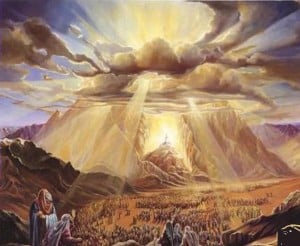The sages ask an important question regarding the Torah portion of Yitro ( The Torah Portion of Jethro). This, after all, is the Torah portion that describes the awesome revelation at Mount Sinai . This is the Torah portion wherein G-d reveals His power to the world through His revelation to the Jewish people. It is surprising, therefore that this powerful and important portion would be named after a man who was after all a pagan high priest of Midian.
The Torah recounts the reunion of Moshe (Moses) and his father-in-law Yitro. Moshe tells him of all the wonderful miracles G-d has done for the Jews:
And Moses told his father-in-law all that HaShem had done unto Pharaoh and to the Egyptians for Israel ‘s sake, all the travail that had come upon them by the way, and how HaShem delivered them”(Exod. 18:8).
Upon hearing of these miracles Yitro responds in joy:
“And Yitro rejoiced (VaYichad ) for all the goodness which HaShem had done to Israel , in that He had delivered them out of the hand of the Egyptians. And Yitro said: ‘Blessed be HaShem , who hath delivered you out of the hand of the Egyptians, and out of the hand of Pharaoh; who hath delivered the people from under the hand of the Egyptians. Now I know that HaShem is greater than all gods; yea, for that they dealt proudly against them” (Exod. 18:9-11).
The word describing that joy in Hebrew is VaYichad. Ibn Ezra writes that the word VaYichad is related to the word Hedva which means happiness. Rashi’s second explanation relates the word VaYichad to the word Chidudin pins and sharp needles.Yitro’s new found awareness of Hashem’s authority gave him a sensation of pins and needles. I would like to submit that the word VaYichad perhaps conveys another meaning as well.
VaYichad might also be rooted in the word ECHAD-One. As in ” Hear o Israel the L-rd our G-d the L-rd is One( Echad).
When Yitro a priest of many pagan deities and beliefs in Midyan meets Moshe and his people in their Exodus from Egypt he is told all that they had experienced. Moshe did not only tell Yitro of the great things that G-d had wrought but also described their “travails”; the hunger, the thirst, the battles and the times of fallen faith.
Yet Yitro suddenly realized that all these things that Moshe was describing , the good and the and the not so good ,were all part of the process of redemption. They all became One in his eyes all under the control of the One true G-d.
And Yitro (VaYichad ) for all the goodness which HaShem had done to Israel. “
Yitro is declaring the ultimate statement of the Shema . He is declaring the joy of understanding the simple unity and wonder of ALL that G-d has done for the people and the deep truth of His Oneness.
And Yitro said:. Now I know that HaShem is greater than all gods; yea, for that they dealt proudly against them’ ibid 18: 10-11).
The commentator Ibn Ezra suggests that the placement of the story of Yitro ( Jethro) coming to join the people of Israel ,right after the story of the battle with Amalek, is there as a result of chronology. Rather its placement is a description of two opposing reactions to G-d’s involvement in this world and His involvement with the people of Israel.
Yitro was not the only man who heard of these great events that Moshe describes . We read earlier in the torah “People heard, they trembled; a shudder seized the inhabitants of Philistia. Then the chieftains of Edom were startled; the powerful men of Moab, trembling seized them; all the inhabitants of Canaan melted”( Exodus 15: 14-16)
Later we will read what Rahab says to the spies sent by Joshua:
And she said to the men, I know that the Lord has given you the land, and that your terror is fallen upon us, and that all the inhabitants of the land have melted away because of you. For we have heard how the Lord dried up the water of the Red Sea for you when you came out of Egypt; ( Joshua 2:9-10).
Yet in spite of that it was only Yitro who “heard and came “( ibid 18:1-3). It was his arrival and declaration that gave the people of Israel a perspective and an affirmation that empowered them.
On the one hand we are living in a generation that has seen miracle after miracle unfold. We have watched a battered people return to their homeland. We have tasted of the fruits that have blossomed in a land that had lain barren for centuries. We had experienced one miraculous battle after another of a small and gifted army. More recently we see a small state whose economy continues to flourish despite the financial ravages all around them. We see the nations planning and conspiring to destroy this land fall into disarray and confusion.
Yet on the other hand we see nations clamoring for Israel’s destruction. We see others wanting to put Israel “in its place”. We see international efforts attempting to boycott and marginalize Israel. We see nations such as South Africa and the Netherlands joining in that endeavor.
Just as there will be many that will come against us and join the spiritual battle of Amalek, the Torah wants us to know that there will be many others like Yitro as well. As the nations aligned with Esau and Amalek spare no effort to marginalize and denigrate Israel, the smaller group of those spiritually aligned with Yitro will stand in that gap.
For those amongst our people who have become disheartened by the hatred directed towards our small land, they must be encouraged by those carrying on the spiritual battle of Yitro. This is true especially in our days as the psalmist says:
A song of ascents. When Hashem returns the returnees to Zion, we shall be like dreamers. 2. Then our mouths will be filled with laughter and our tongues with songs of praise; then the nations will say , “Hashem has done great things with these people.” ( Psalm 126 1-3)
Only then will those disheartened respond:
Hashem has done great things with us; we are happy.”( ibid :3)
LeRefuat Yehudit Bat Golda Yocheved


I’m with Yitro!
Very well said. May Israel find the peace and respect that it deserves very soon!